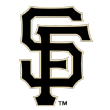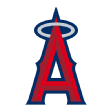As the director of baseball operations and assistant general manager for the Oakland Athletics and then as the general manager for the Los Angeles Dodgers, Farhan Zaidi has been a major figure in assembling the rosters of postseason-bound teams for seven straight seasons. The 42-year-old executive will be hard-pressed to keep that streak alive, however, because earlier this month, he accepted an offer to become the president of baseball operations for the Giants, losers of 187 games the past two seasons, including 89 in 2018.
Zaidi inherits a number of challenges, but he's hardly the only executive who will be under the microscope this winter while refashioning his team for 2019 and beyond. What follows is a look at five executives who have their work cut out for them this winter, particularly as their teams missed the playoffs in 2018. Note that some of these execs are billed as general managers and others as presidents of baseball operations. By either title, they're generally understood to be the faces of their respective front offices when it comes to the big baseball decisions.
The executives are listed based on the 2018 records of their teams, with the worst first.
 Farhan Zaidi, San Francisco Giants (73-89, fourth in NL West)
Farhan Zaidi, San Francisco Giants (73-89, fourth in NL West)
Zaidi inherits a team that had the National League's highest Opening Day payroll ($200.5 million, according to Cot's Contracts), its oldest lineup (weighted age of 29.8 years, according to Baseball-Reference) and its worst park-adjusted offense (82 wRC+, according to FanGraphs), not to mention a bottom-four rotation in terms of park-adjustments (104 ERA-minus, 110 FIP-minus) and a farm system that Baseball America ranked as the majors' eighth-worst in August and that FanGraphs ranked as the seventh-worst earlier this month. The franchise's twin pillars, Buster Posey and Madison Bumgarner, are coming off injury-shortened seasons, as are three of the other six players making at least $12 million in 2019 (Brandon Belt, Mark Melancon and Jeff Samardzija). Another, Johnny Cueto, had Tommy John surgery in August.
Given that mess, the burning question is
All of which is to say that Zaidi needs to undertake some kind of major rebuild, though as he noted with regard to his time in Oakland, that doesn't preclude signing big free agents (though the Giants aren't expected to be players for Bryce Harper or Manny Machado) or trading for veterans. The task ahead isn't about winning in 2019 so much as it is assembling a core to contend perennially, as the Giants did from 2010 through 2016.
 Brodie Van Wagenen, New York Mets (77-85, fourth in NL East)
Brodie Van Wagenen, New York Mets (77-85, fourth in NL East)
The rare agent-turned-executive, Van Wagenen must switch from representing the interests of his clients -- including current Mets Yoenis Cespedes, Jacob deGrom and Todd Frazier -- to building a 25-man roster and overseeing other areas of the operation, such as scouting and player development. The front office's holdovers from the Sandy Alderson regime, assistant GM John Ricco and Omar Minaya, can help with those tasks, but Van Wagenen will need to avoid a too-many-cooks situation in which the chain of command is unclear. Most daunting and not unrelated, he'll have to work with ownership that is prone to micromanaging as well as underfunding a team in the majors' biggest market.
Van Wagnenen inherits a team that has finished below .500 the past two seasons. Ideally, his arrival would come with a commitment to allow him to pursue Machado, who would be a good fit for the roster, but instead the Wilpons are expressing their vaunted can't-do spirit. Thus, the new GM must figure out whether his win-now plan -- which comes at a time when division rivals the Atlanta Braves, Philadelphia Phillies and Washington Nationals all have more compelling combinations of talent and money to spend -- includes trading deGrom (who has two years of club control remaining) and/or Noah Syndergaard (who has three years remaining) against the backdrop of a free-agent market weak in top-shelf pitching. The lack of cost certainty attached to either pitcher means the Mets won't net blue-chip prospects the way the White Sox did in dealing Jose Quintana and Chris Sale, both of whom were signed for several years at below-market rates.
Beyond that, the Mets need to upgrade at catcher, find a better placeholder at first base -- where Peter Alonso is the future -- than last year's last-legs Adrian Gonzalez and construct a plan for how to handle the outfield once Cespedes returns from bilateral heel surgery, since the combination of Michael Conforto, Brandon Nimmo and last year's unimaginative free-agent signing, Jay Bruce, doesn't fit well. How many left-handed corner outfielders does one team need? Van Wagenen also must rebuild a bullpen that ranked in the league's bottom two in both ERA minus (131) and FIP minus (115) -- and do it all under the glare of the New York spotlight.
 Billy Eppler, Los Angeles Angels (80-82, fourth in AL West)
Billy Eppler, Los Angeles Angels (80-82, fourth in AL West)
Hired as the general manager in October 2015, Eppler has presided over three straight sub-.500 teams, and pricey ones at that, with Opening Day payrolls ranked seventh in the majors or higher; this year's $166,649,999 payroll ranked sixth. With in-season trades of Ian Kinsler and Martin Maldonado, the free-agent status of Jim Johnson, and the injured Garrett Richards, Rene Rivera, Luis Valbuena and Chris Young, the Angels have cleared about $40 million from that figure, and they could shed even more if they non-tender Matt Shoemaker and/or trade Kole Calhoun.
Eppler's stated priority is to bolster the pitching staff at both ends. With Richards and Shohei Ohtani both rehabbing from Tommy John surgery and neither Andrew Heaney nor Tyler Skaggs known for durability, frontline pitching is a clear need, and the Angels are expected to pursue free agents such as Patrick Corbin, Nathan Eovaldi, J.A. Happ and Dallas Keuchel. They also could pursue a trade to round out a rotation from which Jaime Barria is the only holdover other than Heaney and Skaggs, who had more than 17 starts for the team last year. The Angels are likely to pursue one of the many available closers as well.
But Eppler can't afford to stop there. He'll need to shore up a lineup that was the league's second-oldest (a weighted age of 29.5 years) and the team's production on the right side of the infield, given the light bat of Kinsler replacement David Fletcher (89 wRC+ in 307 PA) and the continued presence of Albert Pujols, an all-time great who is an expensive, unproductive millstone these days.
More than anything, Eppler must take steps toward building a contender that will convince Mike Trout that it's worth signing an extension past 2020 -- and convince owner Arte Moreno to give him an extension as well, since he's in the final year of his four-year deal. If that task list weren't long enough, Eppler has to do all this while breaking in new manager Brad Ausmus following Mike Scioscia's retirement after 19 seasons on the job.
 Matt Klentak, Philadelphia Phillies (80-82, third in NL East)
Matt Klentak, Philadelphia Phillies (80-82, third in NL East)
The Phillies spent the first five months of 2018, Klentak's third season as GM, contending for a playoff spot, but the league's youngest squad simply ran out of gas down the stretch, going 8-20 in September to finish with a sixth straight losing season. Better days are ahead, in part because the team is poised to increase its payroll dramatically beyond last year's $95.27 million Opening Day figure, the majors' eighth-lowest. Owner John Middleton said last week, "We're going into this expecting to spend money -- and maybe even be a little stupid about it. We just prefer not to be completely stupid."
That kind of statement must have agents Scott Boras and Dan Lozano, the respective representatives for Harper and Machado, licking their chops. Even before Middleton said that, the consensus within the industry was that the Phillies would sign one or the other this winter. Either would fit the roster, given the relative weakness of the incumbents at shortstop (J.P. Crawford and the miscast Scott Kingery) and third base (Maikel Franco) in the case of Machado and left field (Rhys Hoskins) and right field (Nick Williams and Aaron Altherr) in the case of Harper.
Many of those players can and should be deployed elsewhere; part of the 2018 Phillies' problem was a historically awful defense, with the lowest defensive runs saved total (minus-146 runs) since the metric was introduced in 2003. Returning Hoskins to first base after a dreadful minus-24 DRS in left field is a priority, but that will require trading Carlos Santana one year into his three-year, $60 million deal.
If the Phillies sign Machado, Klentak will need to sort out Kingery, Crawford, Franco and Cesar Hernandez, the last of whom has two years of club control remaining. Some of that controllable talent could be used to deal for the Mariners' Jean Segura and Edwin Diaz, at least if Seattle is willing to move the latter. Alternatively, the infield surplus could help the Phillies match up with the Indians in a deal for Corey Kluber or onetime Phillies prospect Carlos Carrasco, and if that doesn't come to pass, expect the team to dip into the pool for free-agent starters, with Corbin the top target.
 John Mozeliak, St. Louis Cardinals (88-74, third in NL Central)
John Mozeliak, St. Louis Cardinals (88-74, third in NL Central)
The other four teams represented here are coming off two or three straight losing seasons. Not so for Mozeliak's Cardinals, who have averaged 86 wins the past three years but missed the playoffs in each, their longest postseason drought since 1997-1999. What's more, the Cardinals are coming off a season that included two high-profile personnel fiascoes -- one involving Dexter Fowler and the other Jordan Hicks and Bud Norris -- and the team's first in-season managerial change since 1995. This isn't how it's generally done in St. Louis, where the bar for competitive baseball is higher than just about anywhere else.
Mozeliak, who was promoted from general manager and senior vice president to president of baseball operations in June 2017 (with Mike Girsch taking over as GM), must show that he made the right call by retaining interim manager Mike Shildt instead of conducting a full managerial search for Mike Matheny's successor. Mozeliak doesn't have to do anything drastic to the roster, though the team has been linked to Harper, about whom owner Bill DeWitt III said, "It's about [considering] putting all our eggs in one basket. We have the payroll room."
Given an outfield in which 24-year-old Tyler O'Neill already must contend with the presence of Fowler (who's still owed $49.5 million), Machado might make more sense. Either megadeal would leave the team with desirable, controllable players to trade for other needs -- two from among the group of Jedd Gyorko, Paul DeJong, Kolten Wong and Jose Martinez, depending on where Machado and Matt Carpenter are situated. Beyond that, the bullpen is a glaring need, and the rotation could use some insurance after Carlos Martinez and Michael Wacha combined for just 33 starts in 2018 due to injuries.
